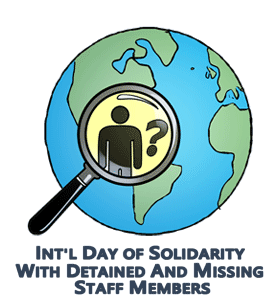International Day of Solidarity with Detained and Missing Staff Members
Quick Facts in NZ
| 2025 Date | 25 March 2025 |
|---|---|
| 2026 Date | 25 March 2026 |
2025 Holidays & Dates - NZ
| New Zealand & Common Holidays | ||
| Misc. & Int'l. Observances | ||
| Christian Holidays |
|
|
›
|
|
